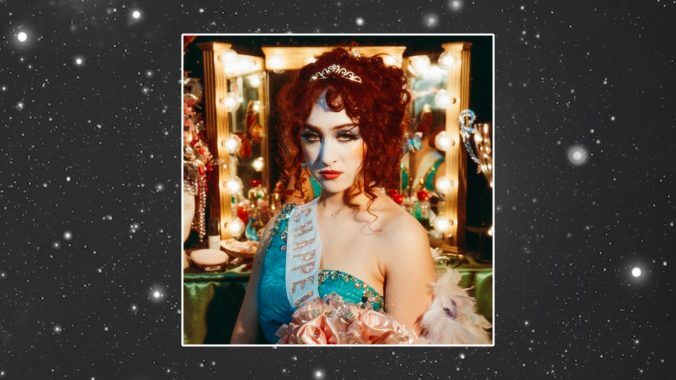No Album Left Behind: Chappell Roan Introduces Her Brazen, Theatrical Self on The Rise and Fall of a Midwest Princess
The pop star’s debut album is melodramatic, zany and relishes in poor taste.

The story of Chappell Roan’s ascent is a familiar one among pop stars: When she was 17, the Missouri native signed with Atlantic and released an EP of dour pop ballads called School Nights. It didn’t take off, and it’s not hard to see why. Songs like “Die Young” and “Good Hurt” are sparse, broadly “dark” and “eerie” and find her contorting her exuberant voice into a deep, Halseyan mumble. In early 2020, in an effort to regroup, Roan began working with a man who was a lot less famous than he is now: Dan Nigro. Their first collaboration, “Pink Pony Club,” wasn’t good enough for Atlantic, and Roan was dropped. Nigro believed in her, though—and so did a lot of other people.
For those in the know, “Pink Pony Club” was an immediately memorable artistic statement; its narrative running parallel with Roan’s own experiences, though the protagonist of “Pony Club” becomes a stripper rather than a popstar. She lives for the stage, knowing all too well her uptight parents won’t accept her passion. Her mother’s horrified reaction—“God! What have you done?!”—acts as the powerfully sung chorus. There’s a great writeup in Vulture that made the case for the song to be 2021’s “Song of the Summer” despite the song having come out a year prior. It’s been more than three years since, and this perfect song is still worthy of that title.
Unfortunately for Roan, this momentum was put on pause as her newfound collaborator gained some of his own. The titanic rise of Olivia Rodrigo took up a lot of Dan Nigro’s time, leaving Roan to release stray single after stray single with no album in sight. Songs like “California,” a yearning ballad about leaving home, and “Naked in Manhattan,” a sparkling ode to debauchery, took “Pink Pony Club” and split the difference. In September, these sundry singles were given a proper home on Roan’s debut album, The Rise and Fall of a Midwest Princess. By the time the album was released, nine of its 14 tracks had already had a life of their own. Despite the unconventional rollout, Midwest Princess does an impressive job of establishing Roan’s bright, gaudy and commanding artistic vision. While we have had the privilege of watching her shape herself over the past three years, it’s still remarkable for an artist to arrive fully formed.
-

-

-

-

-

-

-

-

-

-

-

-

-

-

-

-

-

-

-

-

-

-

-

-

-

-

-

-

-

-

-

-

-

-

-

-

-

-

-

-








































